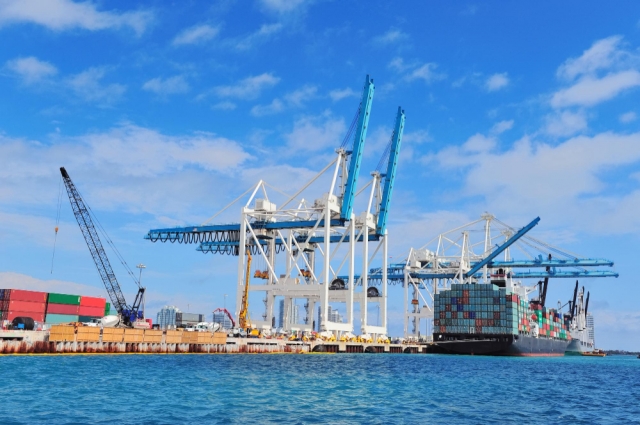For those interested in jobs in shipping, the shipping industry plays a pivotal role in the UK economy, serving as a critical element of the nation's trade infrastructure and contributing significantly to economic growth and employment. As an island with a rich maritime history, the UK depends extensively on its shipping sector to enable international trade, support key industries and maintain its position as a global economic centre. Here we provide more information on the role of the shipping industry in the UK economy and the impact this has on maritime jobs.
Supporting International Trade
The UK's shipping industry is essential for facilitating international trade, handling around 95% of the county's trade by volume. The nation's strategic location and well-formed port infrastructure enable it to serve as a gateway for goods coming in and out of Europe. This connectivity permits the UK to import raw materials and export finished products efficiently, supporting a wide range of industries from manufacturing to retail.
Economic Contribution
The shipping industry is a major contributor to the UK economy, generating billions of pounds in revenue each year. It supports a wide range of sectors, such as logistics, shipbuilding and maritime services, acting as a large source of employment both directly and indirectly. The industry's economic impact extends beyond ports and shipping companies, affecting supply chains and businesses across the country.
Employment and Skills Development
The shipping sector provides employment for thousands of people in the UK, offering a broad range of career opportunities in industries such as engineering, logistics and maritime law. It also plays a critical role in skills development, with initiatives to train and upskill the workforce, ensuring that the UK stays competitive in the global maritime sector. The industry's focus on innovation and technology further drives the demand for skilled professionals.
Key Industry Support
The shipping industry supports several key industries in the UK, such as energy, manufacturing and agriculture. It enables the import of essential raw materials and the export of goods, ensuring that these industries can function efficiently and competitively. The ability to transport energy resources, such as oil and gas, is especially important for the UK's energy security and industrial activities.
Port Infrastructure
The UK's ports are essential parts of the shipping industry, serving as hubs for trade and logistics. They contribute to regional development by attracting investment, supporting local businesses and creating jobs. Ports also play a role in enhancing connectivity and accessibility, facilitating the efficient movement of goods across the country and beyond.
Sustainability
The UK shipping industry is at the epicentre of innovation, embracing new technologies to improve efficiency and reduce environmental impact. Initiatives such as the development of cleaner fuels, automation and digitalisation are helping to make the sector more sustainable. These efforts are in line with the UK's wider environmental goals and contribute to the global drive for greener shipping practices.
The shipping industry is at the heart of the UK economy, enabling trade, supporting key industries, and contributing to economic growth and employment. Its strategic significance, together with a focus on innovation and sustainability, ensures that the sector will continue to play a key role in the UK's economic future.






